FASoS Student Ambassadors Talk 2024-2025
Each month our bachelor and master student ambassadors share their experiences with their study programme at FASoS. Read about the content of the programmes, internships or field trips below.
Bachelor's programmes:
- Srna Todorova, BSc Global Studies
- Emma Rubin, BA Arts and Culture
- Cristina Garcia Vega, BA European Studies
Liva Freimane, BA Digital Society
Master's programmes:
Isabel Bruijstens, MSc Cultures of Arts, Science and Technology (Research)
- Laura Sanges, MA European Public Affairs
- Noemi Meloni, MSc European Studies (Research)
- Marcelina Palamar, MA European Studies on Society, Science and Technology
- Aruzhan Kuztayeva, MA Media Studies: Digital Cultures
- Isabel Bruijstens, MSc Cultures of Arts, Science and Technology (Research)
- Aarya Prabhu, MA Globalisation and Development Studies
- Isabel Bruijstens, MSc Cultures of Arts, Science and Technology (Research)
- Noemi Meloni, MSc European Studies (Research)
Bachelor's programmes
Srna Todorova, BSc Global Studies
My name is Srna Todorova and I am currently in my third year of BSc Global Studies at Maastricht University. I am originally from North Macedonia but I lived in Belgium before coming to Maastricht for my studies. Since I am already in my third year, it is a good time for me to reflect on my experience with Global Studies. What I have enjoyed the most is the variety of different topics that we have learned and read about in our tutorials. For instance, we started with topics like globalization, environment, economy, migration, tolerance…
Right now, I am in my fifth semester and I am doing a minor in sustainability which is giving me more insights into the field of sustainable development challenges that the world is facing today. I have also enjoyed the intensive French language classes in the two previous years and now I chose to continue with them in my third year and learn Dutch.
My favorite topics so far have been the Semester 2: Environment and Economy and my current minor in Sustainability since it has really allowed me to dive deeper into topics like environmental discourse, sustainable development goals, or environmental economics and sustainable growth.
As for student life, I truly love the city of Maastricht and the fact that it feels like it’s made for university students. In my free time, I like to go outside in nature in or around Maastricht (when it’s not raining :) ) or spend time with my friends in the many cozy cafes in the city! I also enjoy how international my friend groups are and I feel like I am constantly learning about the world not just in my Global Studies tutorials but also through the many hangouts with my friends.
November 2024

What I have enjoyed the most is the variety of different topics that we have learned and read about in our tutorials.
Emma Rubin, Bachelor Arts and Culture
During the fifth semester, students have three choices: a minor at a faculty of Maastricht University, an internship or a semester abroad.
During this semester, I got the chance to study in Turin, Italy. And it was one of the best experiences of my academic journey so far. During the semester, I explored a new country of course, but it was also a chance to grow academically and personally. I had the chance to experience a completely different educational system, live in a new culture, and define my goals for the master’s programmes.
Firstly, one of the most significant aspects of this semester abroad was experiencing a different teaching method. In Italy, teaching method was less interactive than the PBL we use at FASoS. Instead of tutorials and readings, the teaching method was lectures-based. For me, this revealed the method that worked better for me and what criteria I needed to look for in master’s programmes. I discovered that I thrived in smaller, discussion-based classes where active participation was important in the learning process.
Moving to another country was challenging in the best ways. I chose to spend the semester in Italy for its rich history, the diversity in landscapes and cities, and the food of course! I loved walking through centuries-old streets and monuments. Adapting to the rhythm of Italian life, and of a big city, was a refreshing change from the northern European lifestyle I am used to in Brussels and Maastricht.
Moreover, the semester abroad also gave me the chance to visit friends who were studying in other parts of Europe. Visiting them was an amazing experience which allowed me to explore other countries and compare experiences. Each friend made me discover the educational systems and lifestyle of their city, which also allowed me to take that into consideration for the future.
Perhaps the most important lesson from my semester abroad was the personal growth. It forced me to become more independent. I had to navigate a foreign system, figuring out public transportation in a language I did not speak, and figuring out the educational system, they were all challenging but wonderful moments I will remember forever. This experience also helped me learn about my academic preferences and career perspectives. I started to see a more distinct path for my master’s program. My semester in Italy was so much more than an academic experience. It challenged me to step out of my comfort zone and broaden my perspectives for the future. It will always be a semester to remember.
December 2024

My semester abroad challenged me to step out of my comfort zone and broaden my perspectives for the future. It will always be a semester to remember.
Cristina Garcia Vega, BA European Studies
My name is Cristina García Vega, and I’m originally from Spain. I’m currently in my second year of European Studies, about to take the economics exam. This means that I have almost completed half of my bachelor's, which is absolutely crazy. I would love to freeze time and stay right here forever, studying what I love, walking through the cosy streets of Maastricht and going out with my incredible friends, even if we have an 8 a.m. class the next day.
That said, I must say that this first semester of my second year didn't leave much room for partying…These last six months have been incredibly busy academically speaking. We had a law course, which was incredibly insightful. In the first year, we focused heavily on politics and adding a legislative perspective felt like building up our political knowledge. Combining politics and law has provided us the tools to debate and analyse European issues like migration, citizen protection, the environment, education, and EU membership. Now, with the economics course, we’re gaining yet another layer of understanding, and it’s becoming clear that nothing is easy when you want to change the world. Along with these courses we had the opportunity to study a language and I chose to study French, which is essential for anyone aspiring to work in European institutions.
Otherwise, I love it here: the improvised dinners, stepping outside and bumping into at least a thousand known people, the city’s frequent celebrations and the opportunity to learn from the incredible cultural diversity of my friends. If I had to choose again, I’d pick Maastricht a thousand times over.
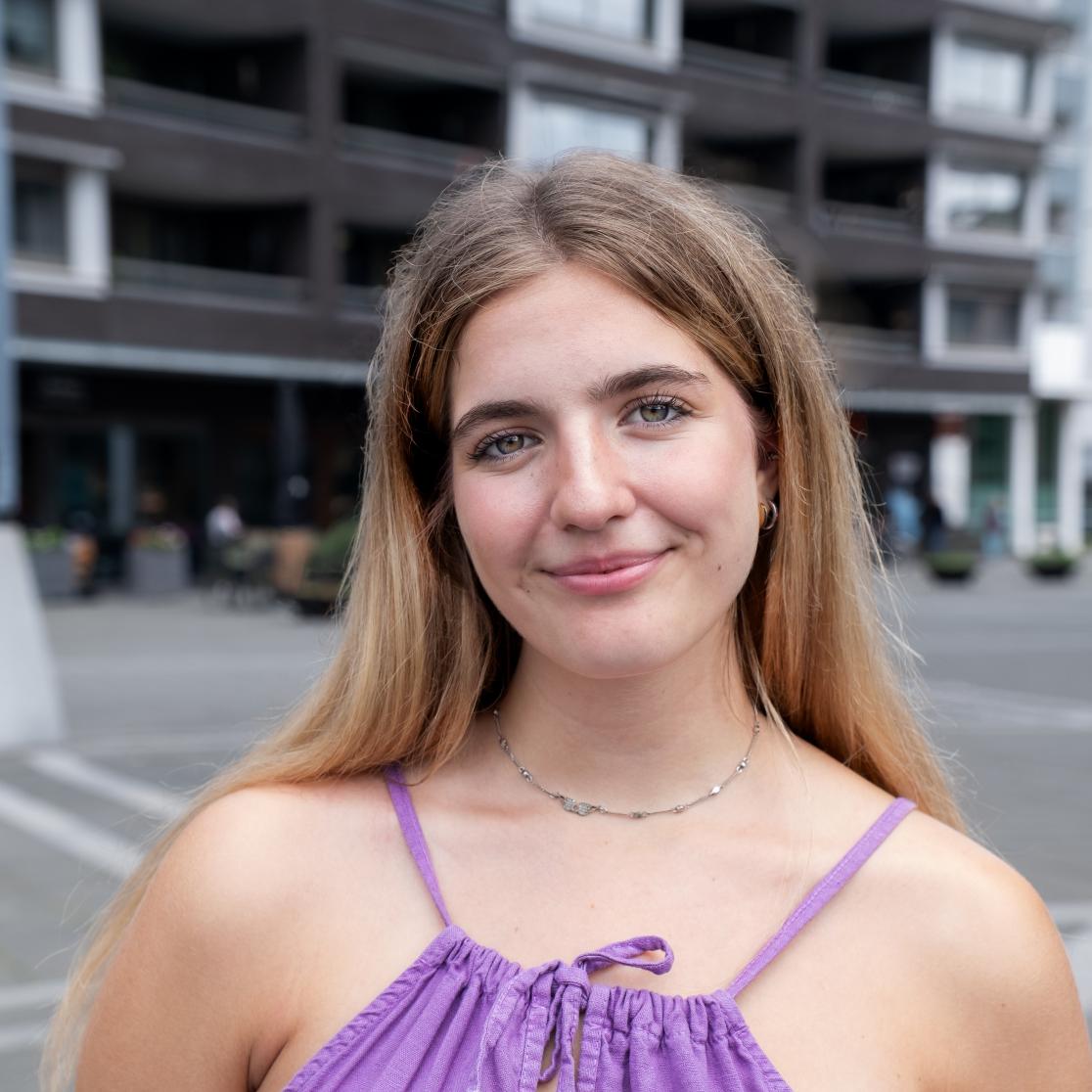
If I had to choose again, I’d pick Maastricht a thousand times over.
Liva Freimane, BA Digital Society
During the past year and (almost) a half, so much has happened for which even an essay-length paper would be too little space. It feels like life has settled a lot since last September. With the craze of a new environment, people and studies, it feels as if only now there has been a steady rhythm and sense of routine to daily life. By having explored technology's impact in so many disciplines such as history, politics, ethics, computer science and more, I have appreciated understanding and discovering what resonates with me the most.
Don’t get me wrong, I still encounter captivating and thought-provoking topics every week! Just these last 2 periods I have had my favourite courses of the BA - Making Knowledge and Artificial Society. With one course exploring how scientific knowledge is made and the role of digitalization in the process and the other following relevant debates of the AI field through time, a clear connection emerges - the philosophical debates and the many theories that come with it have been the most intriguing for me to both unravel and put back together in a timeline. This has not only sparked my curiosity about Science and Technology Studies (STS) and the AI field but has also encouraged me to start imagining how I would like to shape my life and studies after this bachelor.
That being said, it is nevertheless a bit unusual to reflect on my studies when it feels like there is so much ahead. Just a few days ago I handed in my list of preferred universities for study abroad in the 5th semester and only last week my team came up with a research question for my first out of 3 upcoming research projects within the honours programme; it even feels too early to look for possible master’s programmes. While it is nice to reflect on the many things gained, experienced, and explored, I am eagerly awaiting the many opportunities still to come.
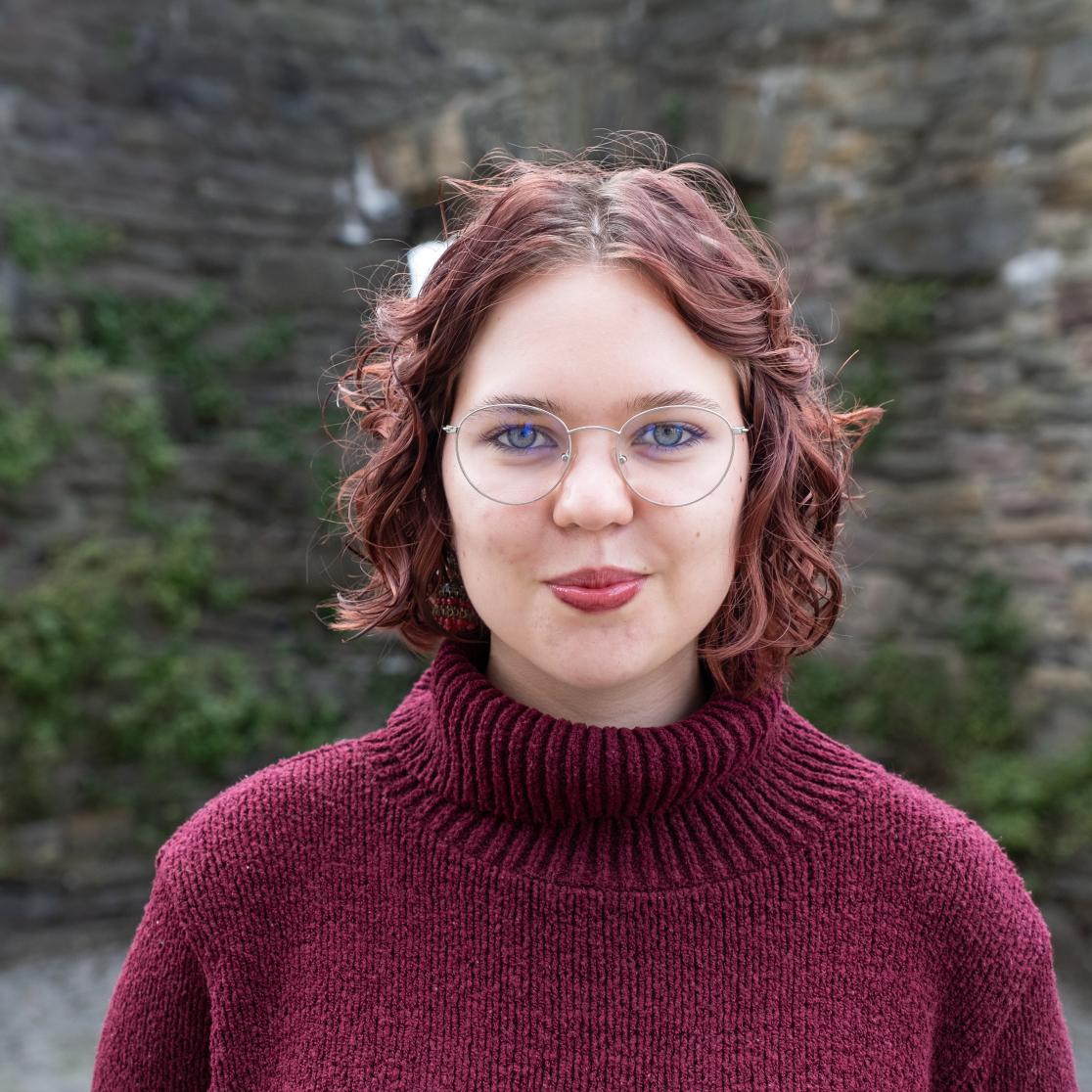
The past two periods have been my favourites in the BA programme so far, with courses that truly captivated me: Making Knowledge and Artificial Society. One delves into how scientific knowledge is created and the role digitalization plays in that process, while the other explores key debates in the field of AI throughout history.
Master's programmes
Isabel Bruijstens, MSc Cultures of Arts, Science and Technology (Research)
The end of the academic year is approaching! This week, I am laying the last hand on my final paper. I can already smell the summer holidays!
Looking back on this first year of CAST, I have learned so much. I have explored topics like art-science, speculative design and exhibition theory, and used methods like archival research, narrative analysis, discourse analysis and making as research. There were times when I felt unsure about what I was doing and how to find my way through these new territories, but it always proved to be a rewarding process.
In the midst of such explorations, I have found that it is very valuable to keep reflecting on your ambitions. I did this at various points throughout the year. I made a conscious effort to reflect on my experiences until that point and get a good grip on where I would like to go next. This has helped me a lot in understanding myself better and feeling more confident in the steps I will be taking next.
In other exciting news, I am making the final arrangements for my internship! It is almost official. I am really looking forward to working together with professionals in the cultural field. Every CAST student is going into completely different directions, so I will have many different stories to share next year!
For now, I am buckling down on my last paper of the year. Currently we follow a course about practical knowledge, artistic research and ethnography. We explore the art of noticing and researching through making. Each of us has explored a new hobby in their project – from cooking to yoghurt-making, to 3D printing, to making puzzles, to photography and to zine-making!
As usual, I will keep you posted on Instagram [@researchmastercast]. Make sure to stick around, as I will be bringing you along during my summer in Maastricht!
June 2024
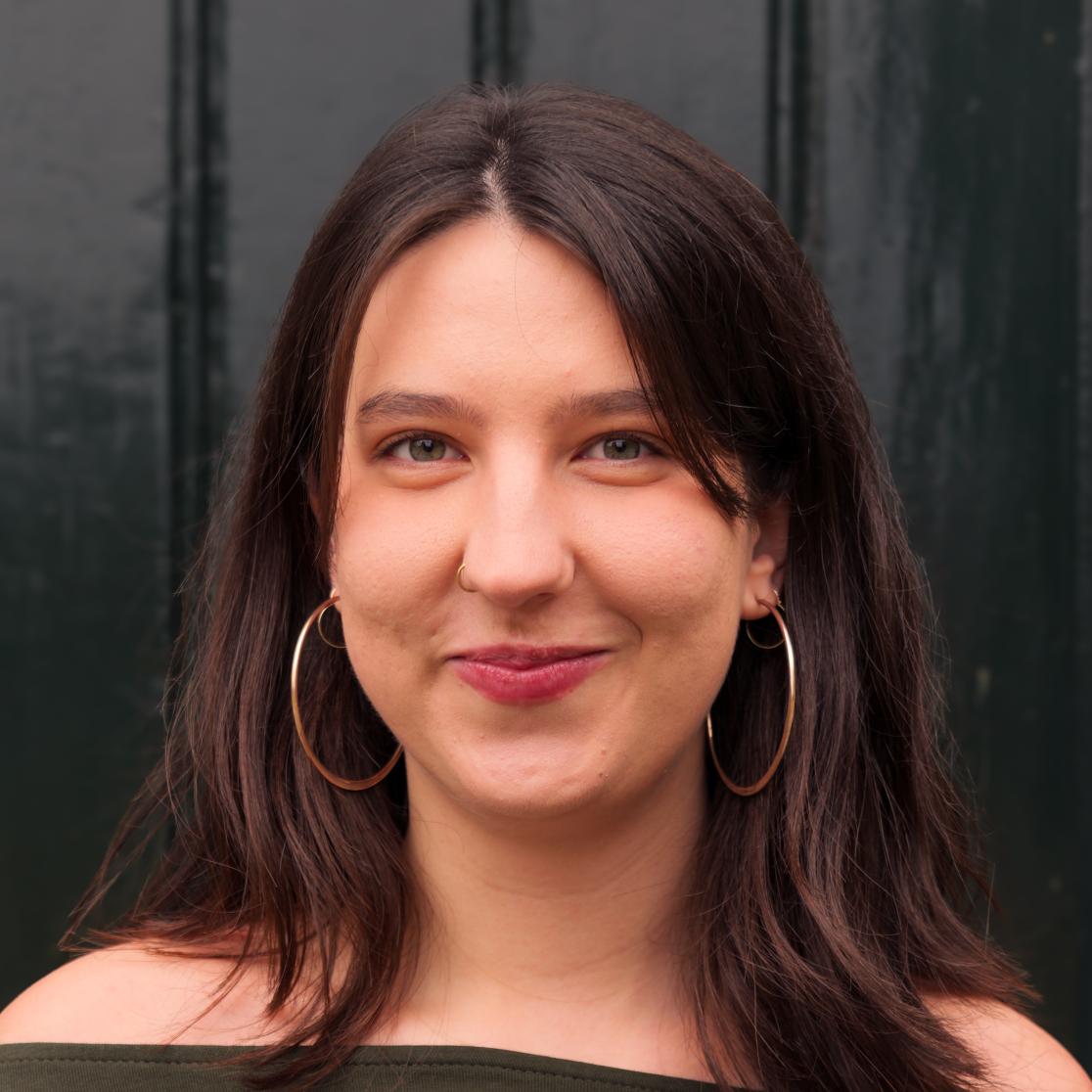
Over the past months, I have managed to get a better grip on the themes and pathways I want to pursue in the future, and – of course of equal importance – the directions that I am less interested in. CAST offers you a great chance to dive into a wide variety of topics, try new things and open yourself up to new perspectives.
Laura Sanges, MA European Public Affairs
As period 2 is ending, here is a small reflection on this first part of my Master’s Journey as a European Public Affairs (EPA) student.
Period 1 was exciting as I got to meet my cohort and get to know the Faculty. Our class is very international since there are more than 13 nationalities, which gives me the chance to exchange opinions and ideas very different from one another. I also started my journey as a student ambassador through FASoS and it felt very welcoming. Of course it was also challenging. I had to adapt to a new University system and going from a bachelor’s to a master’s programme can be really intense. But having the right friends and class-mates aside, can make this process much easier and fun!
What I really enjoy so far about the EPA programme, is how student-tailored it is. In particular, professors offer individual feedback sessions and are available to students. Moreover, the relatively small cohort (we are 40) allows me to talk directly to the professors, while also engaging actively in the tutorials. For instance, Problem-Based Learning (PBL) tutorials expect us to prepare and chair the class, while also letting us interact and discuss with each other.
What I believe are the main highlights of the programme are the skills workshops. For instance, the EU Council negotiation workshop and building a lobby plan as a consultancy firm. They allow us to learn, from experts in the field, work-skills which are required in the EU Institutions, lobby organizations and European public affair’s consultancies. Thus, I would say that the EPA workshops are all useful to learn specific skills for our future jobs.
Now, the winter break is approaching and we just had the EPA cohort Christmas dinner - it was very nice to spend time together as a class. Currently I am writing my paper for the course Lobbying in the EU and I am very excited for the next period to start: we will have exciting activities, such as the study trip to Brussels and new courses!
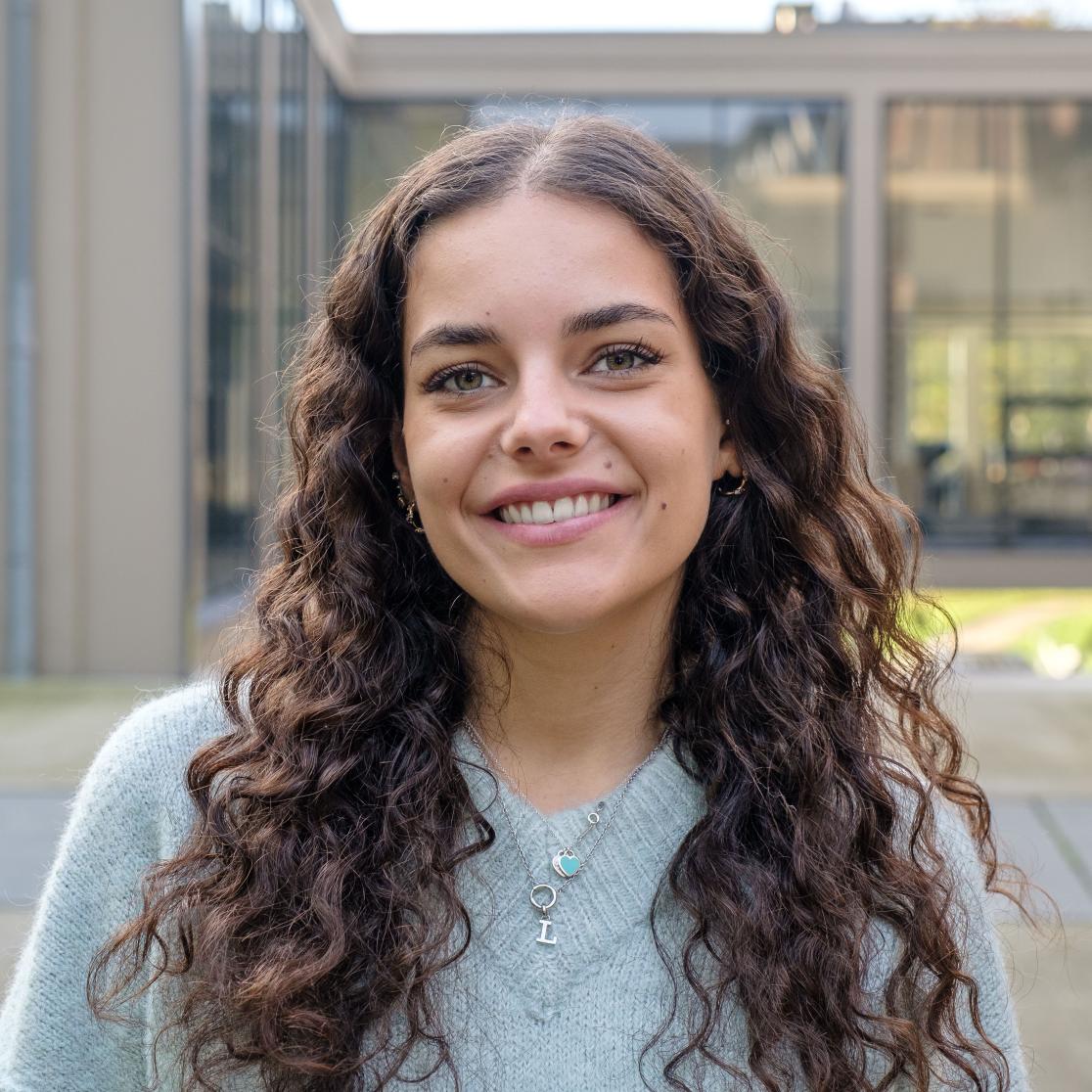
The programme's skills workshops, like the EU Council negotiation and lobbying strategy sessions, provide real-world expertise from professionals in the field. These hands-on experiences equip us with essential skills for careers in EU Institutions, lobbying, and public affairs consultancies.
Noemi Meloni, MSc European Studies (Research)
With Period two almost over, we can proudly say that we have gone through ¼ of this amazing experience! Time is really flying by, so it is important to reflect on what we have faced together and what’s to come next.
The first two periods have been a new, intense, challenging, yet inspiring opportunity to explore this new chapter of our lives. Period one has perhaps been the most emotionally charged so far. Meeting the teaching staff, but, most importantly, our fellow students from our cohort has been such a thrilling experience. Different personalities, academic backgrounds (ranging from sociology to political economics to philosophy), nationalities and interests, we have had to face the first challenges together.
This might actually be my favourite part about the programme: how close-knit the group is. This, I found, is crucial for approaching research. Although we faced period one together, from October onwards we have been split among our different specializations, and focused more on our researches, which are often quite different from one another. Yet, I cannot stress enough how incredibly useful and fundamental it has been to be able to count on my classmates. Whether it was to share a laugh, or to complain about the weather, or to support each other in our different projects, sharing it all with a group of such inspired, talented, and brilliant people has really motivated me to go beyond what I thought were my limits. After all, as they say “if you’re the smartest in the room, you’re in the wrong room”.
I am now finishing up working on my research paper for period two, which has been quite a ride, but from which I have learned immensely. Most importantly, although my focus is in EU external relations, and I use qualitative methods, there has not been a time in which I have not benefited from the help of my classmates, no matter how different their content or methodological specialization is.
In terms of activities, I must say that the integrated workshop has been my favourite experience so far. We have had to present our research projects to our classmates and professors. As always, we were treated as actual researchers in training, and our perspectives were treated as if they came from a faculty’s researcher. This, I believe, is one of the biggest strengths of the program. The professors walk alongside you, giving you the possibility to do research with freedom, within the scope of the courses, while guiding you in every step of the way.
Next period, we will get to start exploring our ideas for the Master’s thesis by writing and presenting our research proposals. Us from the qualitative group will also get trained on how to perform and analyse interviews!
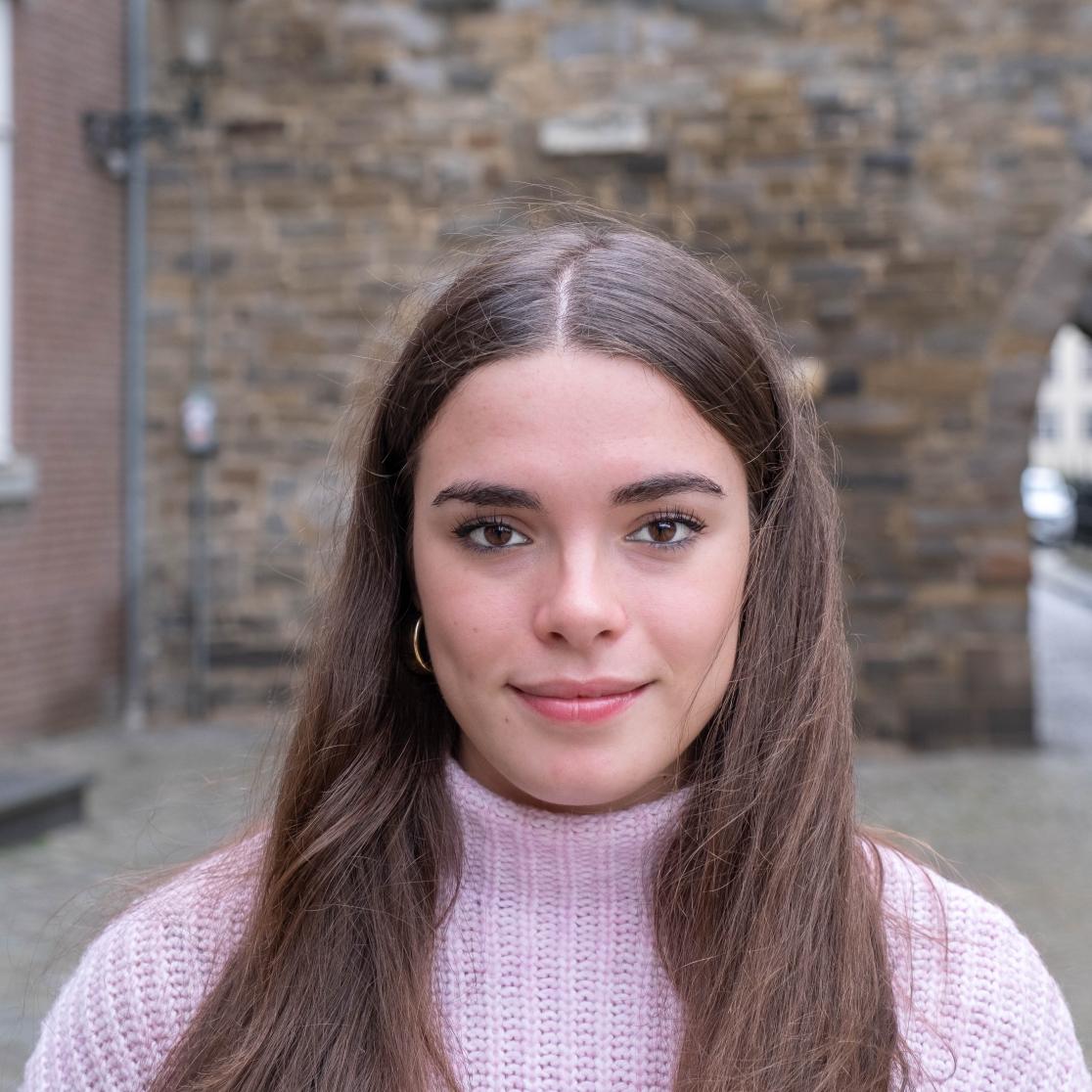
I cannot stress enough how incredibly useful and fundamental it has been to be able to count on my classmates. Whether it was to share a laugh, or to complain about the weather, or to support each other in our different projects, sharing it all with a group of such inspired, talented, and brilliant people has really motivated me to go beyond what I thought were my limits.
Marcelina Palamar, MA European Studies on Society, Science and Technology
So much has happened since I moved to Maastricht at the end of August, and it’s hard to believe my time here is already drawing to a close. Not because I’m quitting the course—far from it!—but because I’m heading to Athens to write my thesis and complete my specialisation.
When I started the ESST programme, I was stepping into largely uncharted territory. My academic background is in languages and business, so science and technology studies felt like a whole new world. Though I’d been introduced to the field through a Future of Work specialisation in the final year of my bachelor’s, I approached this Master’s with an open mind, eager to explore.
And what a fantastic choice it was! Now, as I write this blog halfway through Period 5, it’s incredible to reflect on how much ground we’ve covered. From the dynamics of science and the production of knowledge to constructivism and historiography, the ESST curriculum spans a vast array of topics. This breadth has been one of the programme’s greatest strengths; there’s always something to spark your curiosity.
What’s particularly rewarding is the chance to delve deeply into your interests at the end of each module. While it might sound daunting to have an exam every month, it’s surprisingly manageable. The assignments are written at home and tailored to topics you choose yourself, making the workload both flexible and engaging. Over the past few months, I’ve gained not only academic knowledge but also a newfound awareness of the world around me. This Master’s has challenged me to question assumptions and examine every day phenomena more critically. Why are bikes designed the way they are? How do we shape our understanding of the past? How is knowledge produced—and who decides what counts as knowledge in the first place?
Beyond academics, one of the most enriching aspects of ESST has been the people. The programme is incredibly international, with classmates from all over the world—some fresh out of university, others seasoned professionals. This diversity makes our discussions dynamic and thought-provoking, as everyone contributes their unique perspectives. Through these exchanges, I’ve learned so much, not just academically but also personally, as I’ve gotten to know my peers.
It’s bittersweet to think about leaving Maastricht and many of my classmates behind at the end of this month as I prepare to move to Greece.
You might wonder why I’m heading to Athens specifically. ESST is a European programme which allows students to choose from various specialisations across different locations—from Portugal to Estonia. My interest in smart cities, governance, and integration made Athens the perfect fit for my academic goals. Of course, I’d be lying if I said I wasn’t also looking forward to the warmer weather and delicious food!
I hope this overview gives you a better sense of what it’s like to be an ESST student. It’s been an incredible journey so far, and I’m happy to answer any questions you might have—feel free to reach out on the ESST Instagram!
January 2025
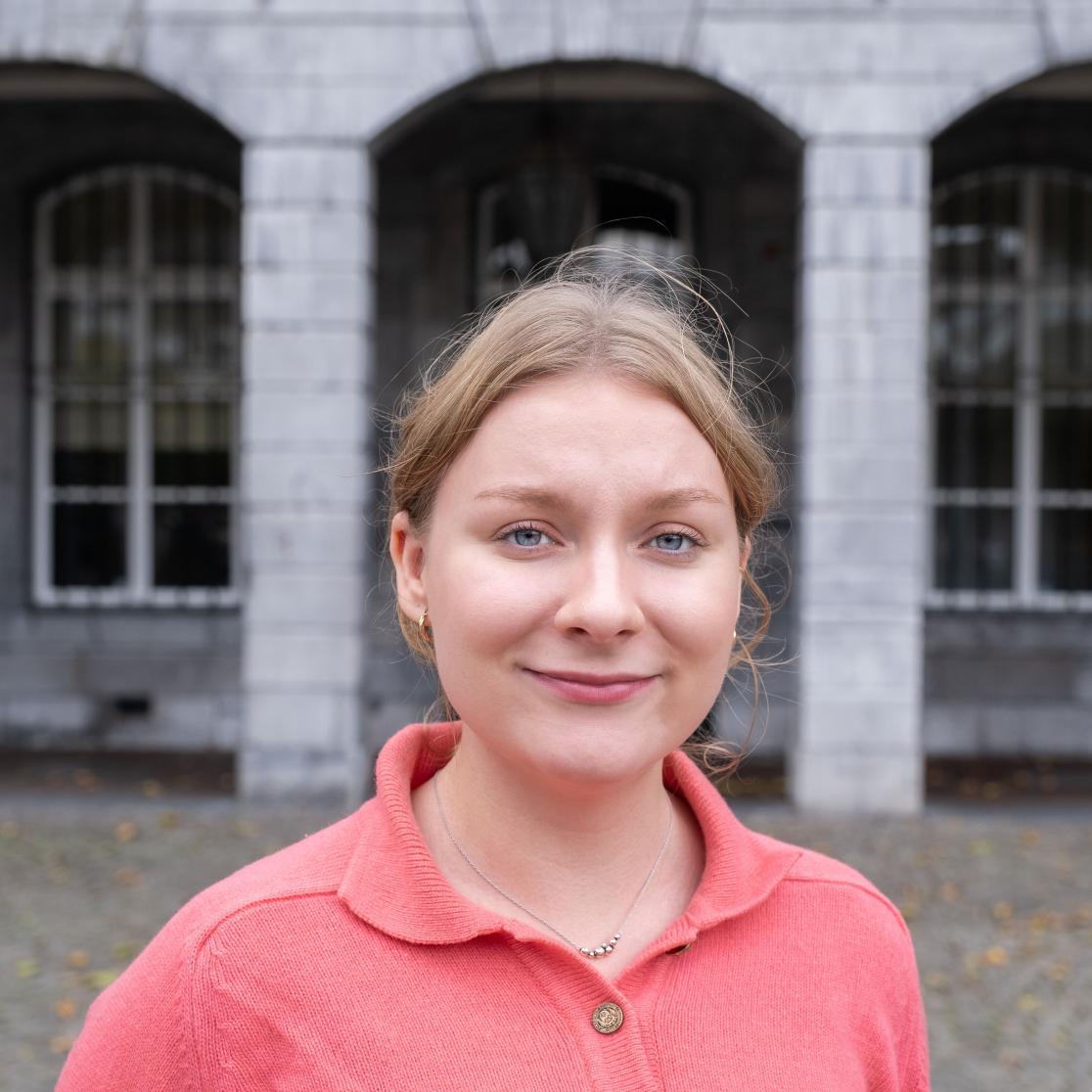
It’s bittersweet to think about leaving Maastricht and many of my classmates behind at the end of this month, as I prepare to move to Greece.
Aruzhan Kuztayeva, Media Studies: Digital Cultures
As I find myself in the middle of Period 4 — the final study period of my programme — I wanted to take a moment to reflect on my journey so far. In just over a month, I’ll be starting my internship and working on my internship thesis, making this the perfect time to look back on everything I’ve learned.
One of the things I appreciate most about this programme is the seamless blend of theory and practice. Initially, I was searching for a purely practical master’s programme, but I underestimated how essential theory can be in developing practical skills. For instance, in Real Virtualities (Period 1), we explored analog media by actually experimenting with it. I even had the chance to take photos using a film camera—an amazing experience! At the same time, our Problem-Based Learning (PBL) tutorials covered key concepts like aura and authenticity, which deepened my understanding of the hands-on work.
Another great example is Design Thinking and Maker Culture (Period 2). Before diving into hands-on digital solution development, we built a strong foundation with design thinking methodologies, critical making processes, and digital ethnography—skills that are now proving invaluable for my internship thesis.
Currently, we’re working on 3D programming, bringing selected toys to life! My group-mate and I are focusing on My Little Pony, integrating project management, design thinking, curatorial writing, and storytelling into an interactive experience. The final 3D models will be designed for a specific audience, incorporating interactive elements that invite engagement and participation.
Looking ahead, I’m beyond excited to start my internship at FashionClash. I honestly can’t wait to step into the fashion world, apply everything I’ve learned, and soak in as much as possible. It’s exciting (and a little nerve-wracking), but I’m beyond grateful for how supportive this programme has been in helping us land internships and prepare for real-world challenges.
Even though my time as a student is slowly coming to an end, I know this is just the beginning. The skills, experiences, and incredible memories I’ve made here are things I’ll carry with me for life.
February 2025
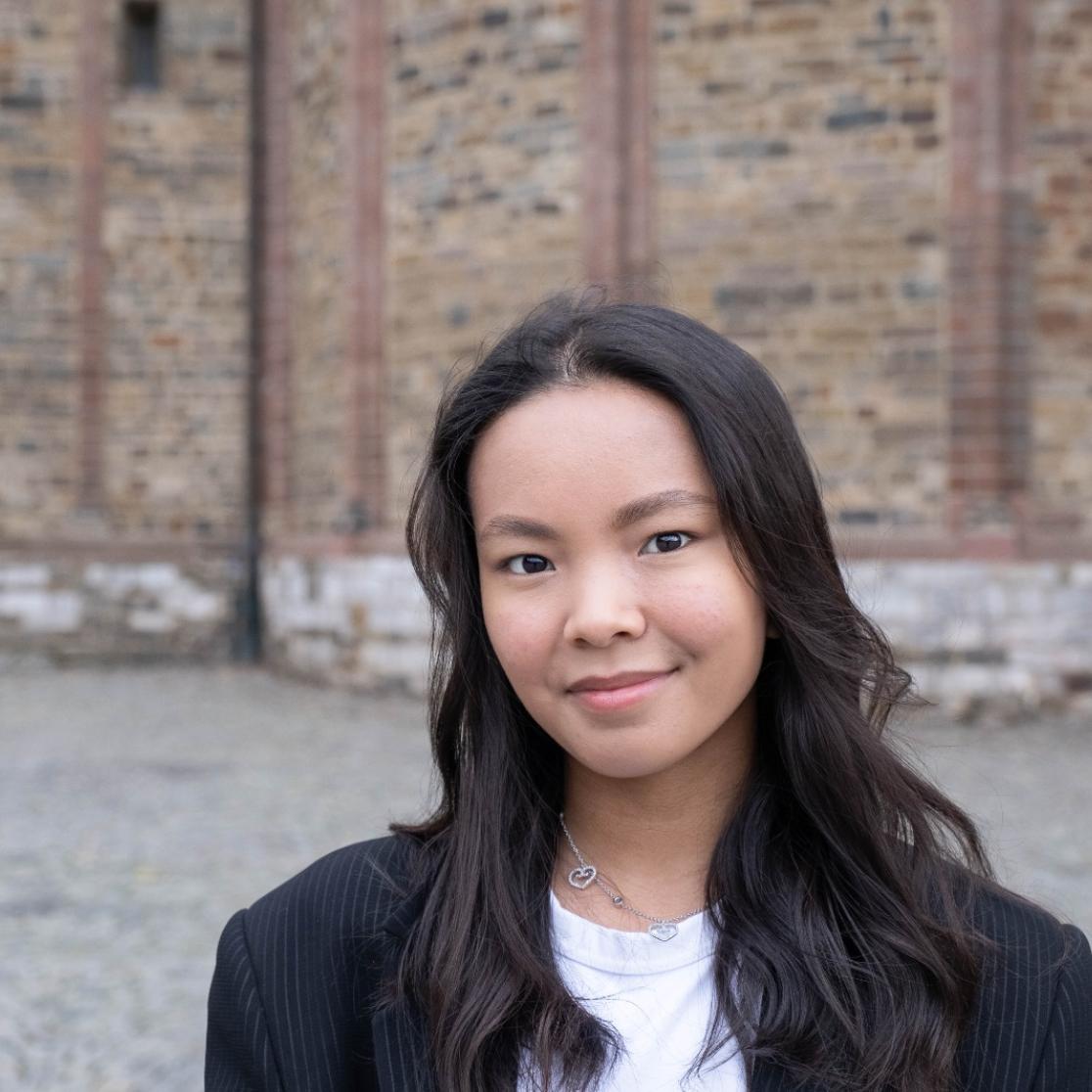
I’m beyond grateful for how supportive this programme has been in helping us land internships and prepare for real-world challenges.
Isabel Bruijstens, MSc Cultures of Arts, Science and Technology (Research)
As the year turned, my full-time internship at Nieuwe Instituut in Rotterdam – the Dutch museum for architecture, design and digital culture – came to a close. I look back on the past months with much joy. I am grateful to have worked on what was truly a special project. The Arus Balik–Shifting Currents programme was a four-month exploration into the pasts, presents and futures of Indonesian-Dutch design legacies, which manifested in talks, workshops, lectures, small-scale gatherings and knowledge exchanges. I had the opportunity to meet inspiring individuals from whom I learned a lot, gaining valuable insights into alternative ways of knowledge production and research cultures in an artistic setting. I look back on a wide variety of interesting events, discussion, idea exchanges, and daily encounters.
Now, the next chapter begins: writing my master’s thesis! I’m currently in the midst of writing my thesis proposal. Roughly every week, I meet my classmates in a thesis seminar to discuss our progress with the programme director and brainstorm collectively. I am also starting to have regular meetings with my thesis supervisor. This process really highlights how all the skills I have gained throughout the CAST programme come together. I now approach various research methods with ease, thinking fluidly across disciplinary borders, and have further developed a sensitivity to nuance and complexity, to mention a few aspects.
It’s hard to believe I am nearing the end of the CAST master’s programme. Two years may seem like a long time, but they flew by! For now, I plan to enjoy my remaining months as a student at FASoS: getting many coffees and sandwiches at Banditos (the amazing campus café), enjoying spring in the streets of Maastricht, and embracing the whirlwind of writing my master’s thesis.
As usual, I’ll keep you posted on Instagram.
@researchmastercast :)
February 2025

Two years may seem like a long time, but they flew by! For now, I plan to enjoy my remaining months as a student at FASoS: getting many coffees and sandwiches at Banditos, enjoying spring in the streets of Maastricht, and embracing the whirlwind of writing my master’s thesis.
Aarya Prabhu, MA Globalisation and Development Studies
Five months ago, I packed my life into two suitcases and left India to start my master’s journey at Maastricht University in the Netherlands. It was my first time living abroad, and the experience has been nothing short of transformative. From navigating new cultures and building a life in a foreign country to balancing coursework and deadlines, every day has been a learning curve. As I enter my third academic period and work toward submitting my research proposal, it feels like a milestone—not just in my studies, but in this new chapter of life.
The first two periods of my master’s programme were both challenging and rigorous. Adjusting to the shift in pace from a bachelor’s degree to a master’s degree was no easy feat. The curriculum demanded a lot, but it also presented an incredible opportunity to learn and grow. In these months I have developed valuable skills such as leading group discussions, giving presentations, debating, and engaging in critical reading. Despite the intensity, the experience was rewarding because it allowed me to explore new ideas and broaden my academic horizons. One of the most rewarding aspects of this journey has been the friendships within my cohort. Since our group is relatively small, everyone has developed close bonds, building a space where we can support and learn from each other. Some of my fondest memories so far involve spending time with my friends after a stressful week of studying. Whether it’s going out to explore the city or simply unwinding together, these moments have added so much joy and balance to my academic life.
I am now finishing up working on my research proposal for period three, which has been quite hectic but a great learning experience. The constant peer reviewed feedbacks, meetings with supervisors and tutors has been very helpful not only in getting a better understanding of my own topic but it has also been a great opportunity to share and hear different ideas, have meaningful discussions, and support each other along the way. The curriculum in this course itself has been incredibly enriching, covering diverse topics such as transnational migration, contemporary debates in globalisation, and the histories and theories of globalisation and development. Looking ahead, I’m particularly excited about the elective courses I’ve chosen: “Health in Times of Crises” and “Brokers and Translators in Development.” One of the things I truly appreciate about this program is the variety of electives offered, including courses from other faculties. For instance, one of my electives is from the Faculty of Health, Medicine, and Life Sciences, which adds an interdisciplinary perspective to my studies.
We will soon be ending this period with individual presentations of our research proposal in front of our supervisors, tutors and other classmates. This will be followed by a GDS cohort get together that we are all looking forward to as soon most of the students will start leaving for their internships or fieldwork. It is a bittersweet moment to realise that all of us will no longer be studying in the same class together but I am excited to see the amazing work my friends and classmates will go on to do with their thesis.
February 2025
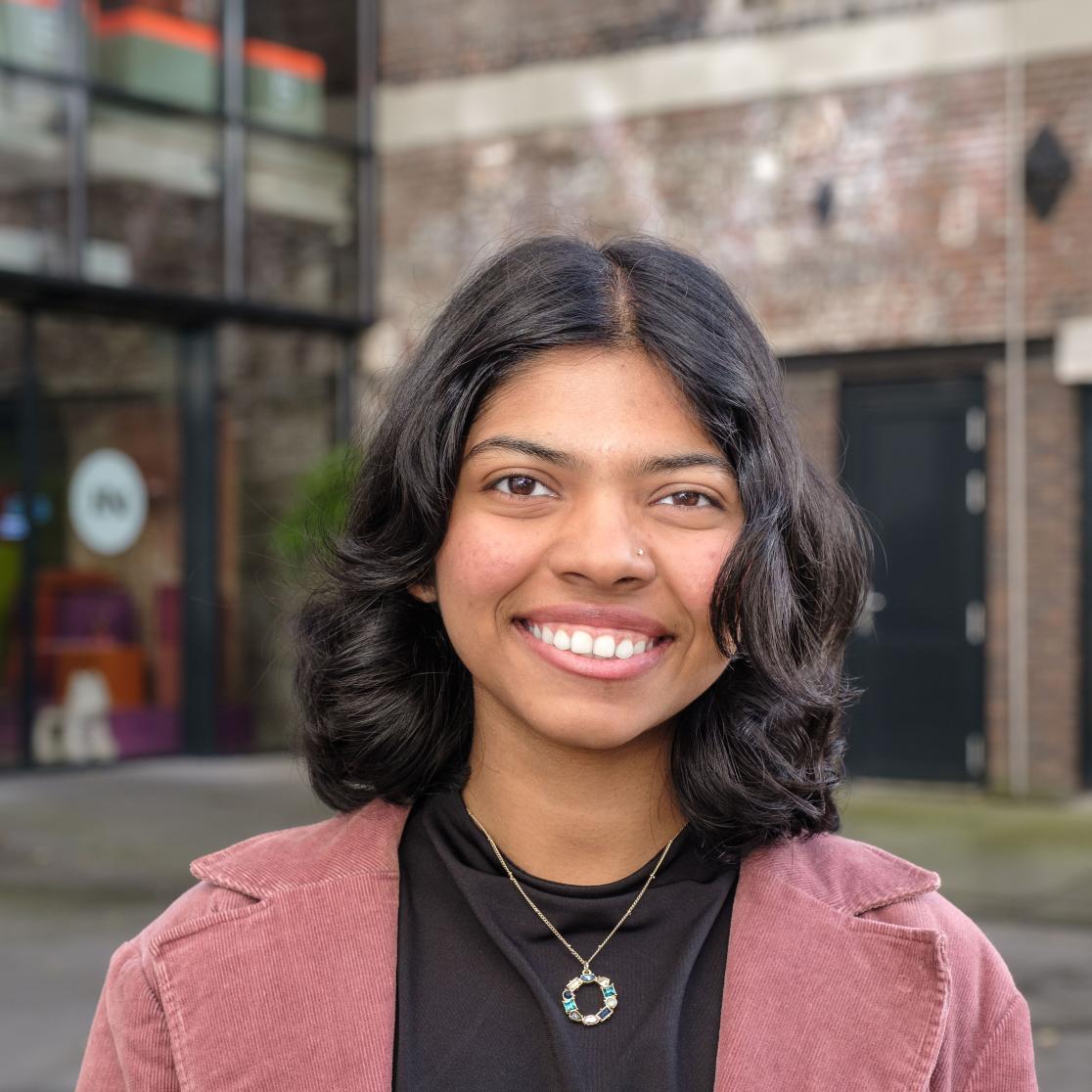
Five months ago, I packed my life into two suitcases and left India to start my master’s journey at Maastricht University. It was my first time living abroad, and the experience has been nothing short of transformative.
Isabel Bruijstens, MSc Cultures of Arts, Science and Technology (Research)
What do ways of dealing with noise from outdoor events tell us about the way people experience and build home, in their own houses as well as in the wider public context? What does ‘home’ mean for different individuals, and what does it mean to be a good neighbour? For my CAST thesis, I explored these questions through ethnographic interviews and historical document analysis. In exactly one month, I will submit it, so I’m in the middle of the final stretch! I alternate writing and analysing with many, many walks through Maastricht. Maastricht is pretty small, so I usually walk to the faculty or to the university library. I’ve also made a habit out of treating myself on coffees (many coffees!), pastries from the local bakery, flowers from my favourite florist, fresh fruit from the market, or just catching a some sunrays now that summer is around the corner.
The past half year has been quite the journey. As the thesis deadline approaches, I feel very excited but also quite nervous, naturally! It’s a vulnerable thing to hand in a project that took so much time and dedication, but I feel incredible grateful for the opportunity. The document is a reflection of the fascinating conversations I had with residents and cultural professionals, who took the time to open up to me and generously told me about their experiences. It’s a reflection of early morning train rides to go on fieldwork trips, of hourlong explorations of policy documents, legal verdicts and online blogposts, and many reading sessions of news articles. It’s also a reflection of the support I received from my supervisor in this process, and from my partner, family and friends who encouraged me when I felt overwhelmed at times.
CAST is quite a limitless field. The former programme director once described it as a living organism: a programme that changes a bit every year, depending on the background and interest of the students who enter it. While the courses stay the same, the content of the in-class discussions and the class output looks different per cohort. Despite being a small group, my class is a good example of this, with topics ranging from outer space habitats to medical ethics, to AI technologies, to museum narratives, to questions about societal knowledge production. Looking back, CAST has helped me to get a clearer idea of the kind of research that I am interested in, topic- as well as method-wise. For the former, the main driver behind most of my interests is a strong sense of community engagement, as well as an opportunity to explore people’s experiences in the mundane, taken-for-granted contexts of everyday life. As for methods, CAST helped me to further improve my skills in ethnography and doing interviews, as well as become more attuned to my interest in (audio)visual storytelling, which I hope to explore further in the future. For my next steps, I am very interested to develop my research practice in the further in the field of investigative journalism, and research communication efforts.
For now, however, I will concentrate on completing my thesis and enjoying a well-deserved break afterwards :)
@researchmastercast
May 2025

The past half year has been quite the journey. As the thesis deadline approaches, I feel very excited but also quite nervous.
Noemi Meloni, MSc European Studies (Research)
I can hardly believe it myself, but here we are: the final period of the first year! What a rollercoaster these past months have been. This second semester, in particular, has given us a lot of food for thought.
We started exploring ideas for our thesis—which we’ll develop fully in the second year—and began to get familiar with research designs. For us qualitative folks, that meant diving into advanced interviewing and even conducting our very first interviews! It was equal parts scary and exciting.
Period 4 then offered one last chance to engage with our content specialisations as groups. Personally, the course on EU relations with the U.S., China, Russia, and the MENA region has been my absolute favourite of the year. Learning directly from world-leading experts on the EU’s external relations has been such a cool, interactive, and eye-opening experience—especially for those of us interested in international relations and global order.
On the methods side, my group focused on qualitative content analysis and the many tools it offers. I genuinely loved this course as well and will definitely apply what I learned to my thesis work.
Now, we’re facing our final challenge of the year: period 5, with its pilot project and extended thesis proposal. To be honest, this semester hasn’t been particularly generous to me in terms of energy—I can feel the weight of this intense academic year. But I can also feel the growth. I am no longer the same Noemi who started this journey back in period 1.
And that, to me, is the most meaningful accomplishment: knowing that RMES is actively shaping me into the kind of person—and researcher—I aspire to be. There’s still a long road ahead, but I feel more prepared than ever to walk it.
What I’m most excited about, beyond successfully getting through period 5, is Year 2! I’ve chosen the exchange specialisation, so I’ll be spending the fall semester in Tokyo, Japan! I’m still in disbelief that this incredible opportunity is really happening.
Of course, it’s a bit bittersweet. Our cohort will be splitting up—many are heading to Cologne for the double-degree track. But I’m so proud of each and every one of us. Even if we’ll soon be living in different cities, this is just the beginning of becoming the best versions of ourselves. Can’t wait to see what the future holds for us!
May 2025
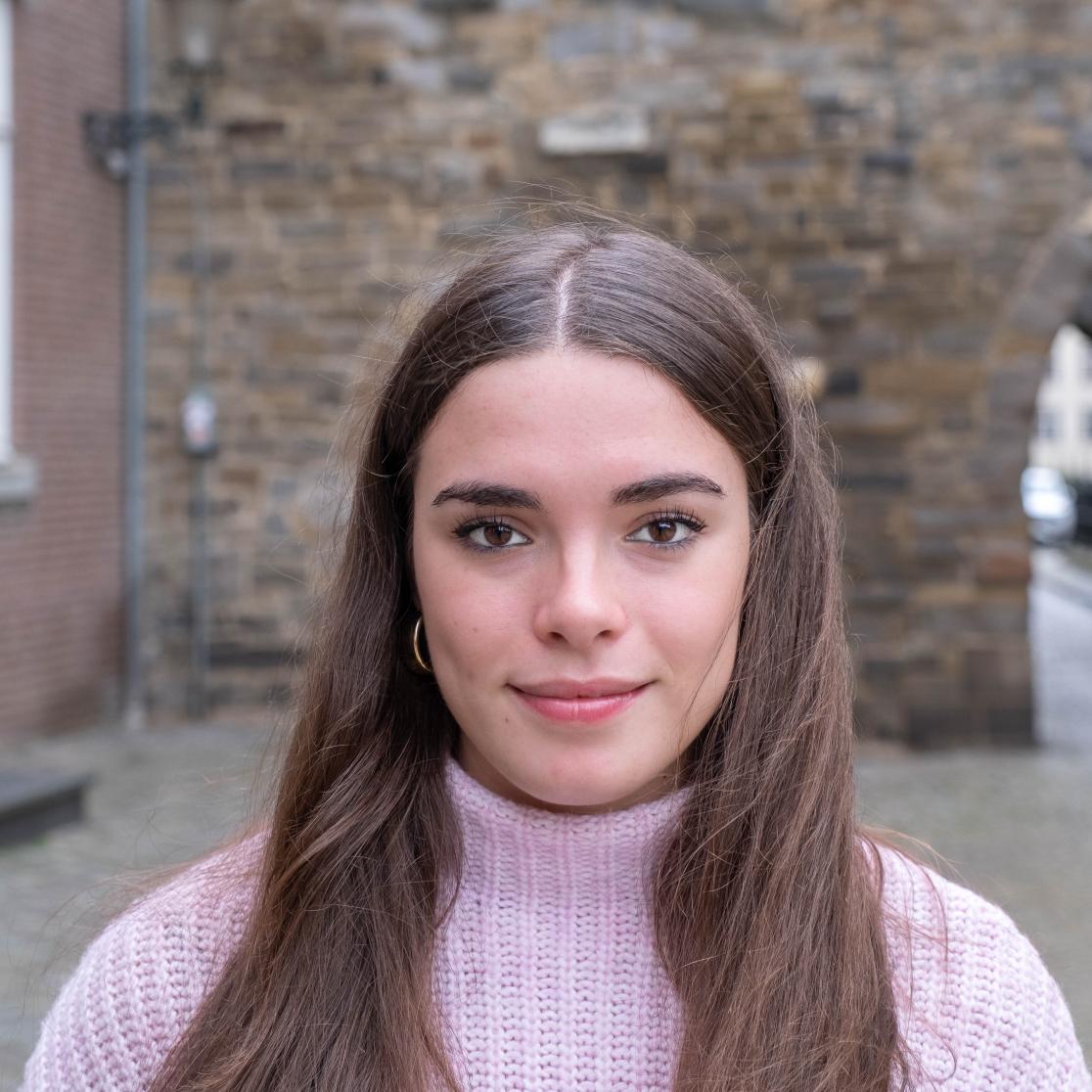
What I’m most excited about at this point is the second year! I’ve chosen the exchange specialisation, so I’ll be spending the fall semester in Tokyo, Japan! I’m still in disbelief that this incredible opportunity is really happening.